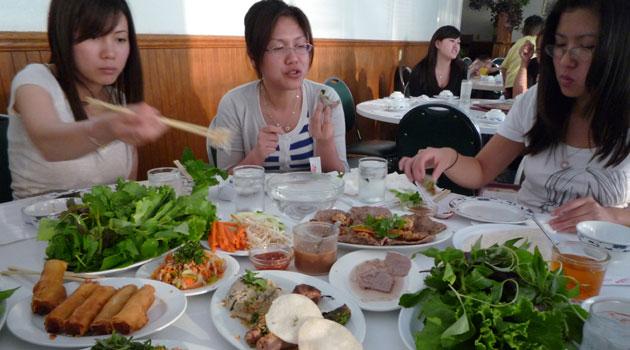Czech Republic: Vietnamese mafia could spoil bid for national minority status

Czech Foreign Minister Karel Schwarzenberg, who chairs the Czech Government Council on National Minorities, is planning to submit a proposal to the Government to grant ethnic Belarussians and Vietnamese national minority status. There are 12 officially recognized national minorities in the Czech Republic.
Vietnamese people are the third most numerous group of foreigners in the country after Slovaks and Ukrainians.
Czech Interior Ministry statistics show that 57 762 Vietnamese persons were legally residing in the country last year. The available data show that around 4 000 Belarussians live in the Czech Republic.
Critical voices have been raised against recognizing the Vietnamese as a national minority, in particular because of the reputation of the Vietnamese drug mafia. Czech Interior Minister Kubice, for example, has taken exception to the plan, telling the Czech daily Právo that he sees a basic difficulty in the massive problem of drugs produced by organized crime in Vietnam. However, Kubice reportedly said that fact does not mean he has anything against respectable Vietnamese people.
Czech MP David Šeich, Vice-Chair of the Foreign Affairs Committee of the lower house, told Právo: "What is up for discussion is whether Minister Schwarzenberg just wants them to be members of the Council, or whether he would like to accord them other rights, so I would be careful." Schwarzenberg has commented on his decision by saying that Belarussians and Vietnamese people are represented in the Czech Republic in sufficient numbers to have representatives on the Council.
Czech Vietnamese people represented by the Association of Czech Citizens of Vietnamese Origin (Asociace českých občanů vietnamského původu) and the Vietnamese Union of the Czech Republic (Svaz Vietnamců v ČR) have asked the Government for recognition several times, most recently last November. Recognition as a national minority would, they say, make it easier for them to negotiate with state bodies and could bring them financial subsidies to support their culture and language.